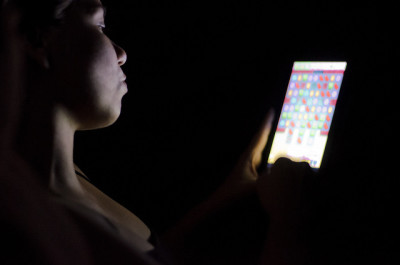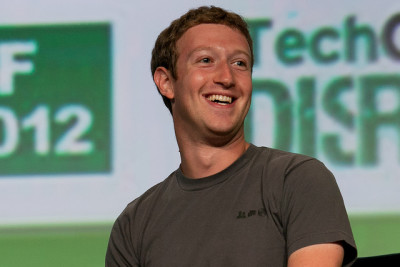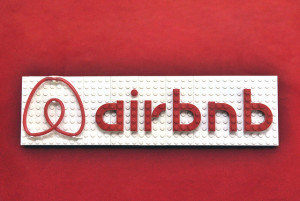By Peter Ward November 6, 2015

Playing Candy Crush ©« м Ħ ж »
Activision Buys Candy Crush Maker for $5.9bn
Mobile games maker King Digital, the company behind the immensely popular Candy Crush game, is to be bought by Activision Blizzard for $5.9 billion, it was announced on Tuesday.
Activision only makes a handful of games for the mobile market, as the majority of its video games are high budget offerings for consoles such as the PlayStation 4 and PCs. The company, which posted third quarter earnings this week that beat analyst estimates, will launch the latest in its Call of Duty series of games this week.
King Digital’s most successful game is Candy Crush, which is still the fourth highest grossing game in Apple’s app store three years after it was released. King says it had 474 million monthly active users in the third quarter of this year, down from 495 million a year ago.
“The combined revenues and profits solidify our position as the largest, most profitable standalone company in interactive entertainment,” said Activision Blizzard CEO Bobby Kotick in a statement.
Activision has been fairly late to the mobile gaming surge, which has grown along with the sophistication of smartphones. Activision generally targets the more hardcore gaming fans, while King’s games are aimed at casual gamers. Kotick claims the new company will have more than 500 million monthly active users.
Activision will pay a 20% premium to King’s closing price as of October 30, but less than where King traded when it first went public in March 2014.
E.U. Predicts Modest Recovery
The European Union’s economy will grow at a “modest pace” in 2016, according to an official forecast released on Thursday.
The region’s economy will be boosted by cheap energy and central bank stimulus, but continues to suffer from low investment and high debt, according to the autumn forecast. The E.U. cut its GDP growth forecast for the 19-nation bloc from 1.9% predicted in May to 1.8% in this week’s report.
“Sustaining and strengthening the recovery requires taking advantage of temporary tailwinds including low oil prices, a weaker euro exchange rate and the ECB’s accommodative monetary policy,” Valdis Dombrovskis, vice president of the European Commission, said in a statement.
The report also predicts inflation to increase to 1% in 2016, from 0.1% this year, although that will still fall well short of the E.U.’s target of 2%.
European Commissioner Pierre Moscovici warned that the recovery will be uneven across the 28 member states of the E.U.
Greece’s economy, which recently secured a new three-year bailout program, is forecasted to shrink 1.4% this year and 1.3% next year, before growing 2.7% the year after. In contrast, Ireland’s economy is expected to grow 6% this year, the highest growth rate in the region.
Facebook Profits Jump

Mark Zuckerberg, CEO and founder of Facebook ©JD Lasica
Facebook reported an 11% increase in net income for the third quarter of the year, as the social media giant released its earnings report on Wednesday.
An increase in advertising revenue meant net income reached $891 million for the three months ending September, compared to $806 million for the same period last year. Revenue from advertising grew 45% to $4.3 billion.
That revenue increase was driven by an upturn in the number of users Facebook boasts. The website reported 60 million new monthly active users, bringing its total global users to 1.55 billion. Facebook’s expenses were up 68% year-on-year, but this increase was expected as the company had previously stated it would invest heavily this year.
Facebook’s other platforms also enjoyed good quarters. Instagram’s monthly active user numbers topped 400 million, while messaging application WhatsApp passed 900 million.
Shares in Facebook initially jumped 5% in after-hours trading on Wednesday, before settling to an increase of around 4%. The company’s stock is at an all-time high and is up around 25% since mid-August.
San Fran Citizens Say No to Rental Restrictions

Airbnb logo in legos ©Omar + Kazumi Ovalle
Citizens of San Francisco voted against proposals to restrict short term home rentals on Wednesday, giving a boost for companies such as AirBnB.
The vote came out 55% in favor of ditching the “Proposition F” proposals, which were backed by affordable housing advocates and tenants’ rights attorneys. AirBnB spent more than $8 million to defeat the measure, through canvassing and advertisements.
The proposal would have shortened the number of days home owners can rent out their units to 75 days a year, from the current limit of 90 days.
On Monday protesters gathered outside AirBnB’s headquarters, saying the company has helped fuel the city’s current housing crisis. They claim that as many as 2,000 units have been removed from the regular rental market to be listed on AirBnB, which has resulted in less supply, higher rental prices and an increase in the number of evictions.
“Tonight, in a decisive victory for the middle class, voters stood up for working families’ right to share their homes and opposed an extreme, hotel industry-backed measure,” said Christopher Nulty, a spokesman for Airbnb.
Syrian War Alliances Interactive

Feb. 23, 2012. A Free Syrian Army member prepares to fight with a tank whose crew defected from government forces in al-Qsair ©Freedom House
The war in Syria has already had a large political and economic impact on the rest of the world. Recently Russia began air strikes in the country, while the U.S. also announced it will be sending ground troops into the conflict.
The war now involves several different parties and a number of complex alliances. This week Quartz published an interactive which goes a long way to untangle who is fighting who, and who is working together in the conflict.
The simple interactive separates internal forces from external ones like Russia and the U.S., and users are able to see the relationship between all of the different participants by rolling a cursor over graphics representing the Islamic Front, ISIL, the Syrian Government and several Middle East countries involved in the fighting.
The United States and its European allies, for example, are backing the Free Syrian Army and Syrian Kurds, while actively fighting ISIL and opposed to the Syrian government. Russia is also allied with the Syrian government and is actively fighting all of the rebel groups and ISIL.
This entry was posted on Friday, November 6th, 2015 at 5:37 pm. It is filed under Week in Review and tagged with Airbnb, Candy Crush, economic recovery, Facebook profit, Syrian war. You can follow any responses to this entry through the RSS 2.0 feed.
Comments are closed.
